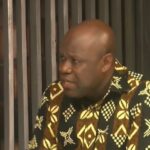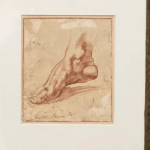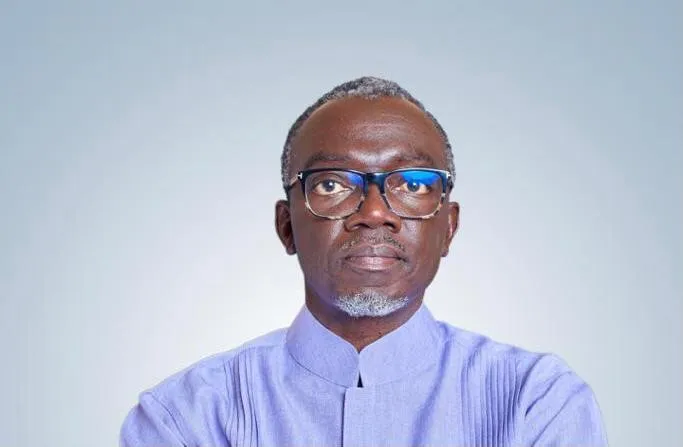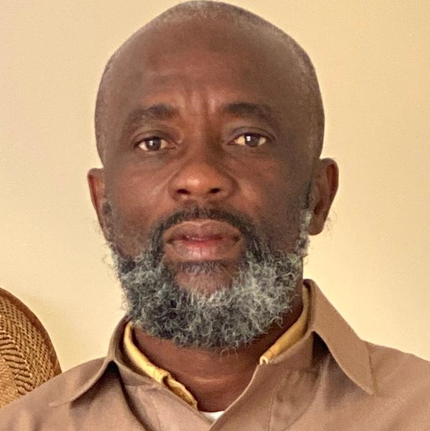Slaying some of the ghosts of newliberals – Inspiration from Micere Githae Mugo.
REMEMBERING MICERE MUGO
Yesterday, something happened that really touched me. I shared, as part of the mourning and celebration of our global icon, Micere Githae Mugo, an excerpt from a speech I will soon deliver in Accra and which will be streamed online globally. That excerpt was a celebration of Micere, a woman whose work I admired and whose thinking had a profound effect on me from a distance. I never physically met Micere, regrettably.
But I benefited tremendously from her wisdom. Micere wrote the words that follow, words I have borrowed for a book on leadership in Pan Africanist and Mentoring/Coaching Leadership approaches that a few comrades of mine are co-authoring, and intend to publish in 2024. I had longed for Micere to write a blurb for us and had even told the group so.
Micere was an inspirer. Micere was an example. We adored Micere Mugo. Micere is gone but Micere lives on through the hundreds of millions that benefited from her life work. Hear Micere: “The question that I, therefore, wish to pose is: are our minds liberated zones or occupied territories? What new paradigms and theories are we as African intellectuals coming up with that can sit at the international conference tables as viable alternatives to imperialist and Western imposed ‘models?’ If we were to answer these questions honestly, we would have to admit that intellectuals, who once produced ideas which were innovative, progressive and homegrown, seem to be very few in number these days. The majority of today’s scholars seem to be too busy perfecting incomprehensible modernist jargon and tired recycled Western ideas to become inventors. I posit that our minds need to become the primary ‘liberated zones’ we should aim at securing, otherwise we will not have the ability or the imagination to create viable literal ones.”
Vintage Micere Githae Mugo! When comes another? Indeed, there were women before Agamemnon.
But I was telling a story about what happened yesterday. Trying to get a part of the Ghana Association of Writers’ that retains my respect involved in a speaking event planned for 25th July, the one referred to earlier, I put up a post. Showing that I will attempt to use orature techniques that Micere Mugo was so passionate about and with which she dazzled so many audiences and so much readership in her lifetime. At the peak of her powers as a writer and speaker, Micere Mugo was simply a wonder to behold.
Charming. Combative. Eloquent. Persuasive. Courageous. Charismatic. Present. Scholarly. Historical. Impressive. Unforgettable. Humble. Committed. And much more.
My friend and comrade, Jebet Amdany reading the excerpt, decided that the Githae family had to see it. She sent it to them. A train of events then unfolded. When Africans come together and work together, we are powerful beyond compare. That is the ideal Pan Africanism champions.
I got invited to join a group of Pan-Africanist friends, family and admirers of Micere. My friend, brother and comrade, the redoubtable Pan-Africanist campaigner, Brian Kagoro, dropped me a line to say he had taken note that I quoted from his favourite Micere Mugo lecture. And then Micere’s family and friends got in touch to tell me that they believed we should make the 25th July 2023 event a truly Pan-Africanist one. They had therefore publicised the upcoming event on many Pan Africanist fora.
When we gather to engage on the 25th of July, we must remember that we are backed by great ancestors like Micere Mugo and many others that fought for freedom of all people. I promise you all, Micere Mugo will be with us in spirit that day.
INFORMATION ASYMMETRIES
In the interest of society, I will not continue this conversation with the chap who set me off with Eurocentric tosh. Neoliberal hubris is a block to learning. It knows it all and thinks the centre of the world is located in the West.
W. Edward Said, Samir Amin, Adu Boahen, Ade Ajayi, Ngugi wa Thiongo, Wole Soyinka, Chinua Achebe, Sembene Ousmane, Ama Ata Aidoo, Ayikwei Armah, Animata Sow Fall, Lola Shoneyin, Chimamanda Adichie, Thabo Mbeki, Ali Mazrui, Abdul Latif Abdallah, and many, many others have done more than enough to educate people on such matters. Those who take no heed up till now cannot learn. I will not try to wake up a man who pretends to be asleep. Our forebears said that is the hardest thing to do in life.
Many neoliberals are taught a concept and they start to think the world began when they were born. Being my final post on this thread, let us do a rehash of the points made by this alienated African – to invoke Fanon, as I understand them. There may be people truly interested in learning something from this discussion. I will therefore be a bit more expansive. If such others are interested in a more useful conversation, I will engage. But I am done with this hollowed-out sepulchre of an African who thinks Stiglitz, a fine economist by the way, pioneered what? Tofiakwa!
This debate started on an engineers platform. Engineers, at their best, are empirical people. They are diligent. They respect facts and science.
The original claim falls into a category I have had global debates with authorities in some fields on. That information asymmetries were pioneered by Stiglitz, in our adult life, is such a ridiculous claim that, if this argument had not been made, I would not have believed some African intellectuals still hold these views. Is this what Walter Rodney, Carter G. Woodson and others, just as Micere Mugo did, warned about when they talked about miseducation of Africans?
The claim was made. That Stiglitz pioneered information asymmetries. Laughable, for this is balderdash.
The fascination with new academic tags is a neoliberal disease, especially of the neoliberal magical thinking finance people based in America. People like the most recent purveyor of bogus chronocentrism. They are simply unable to comprehend history or polycentricity in world affairs and human history. Too many African self-styled sophisticates go to America, drink a can of Coca Cola, hear a new expression somewhere and think the world has just begun. LONG, LONG, LONG, LONG BEFORE STIGLITZ, information asymmetries were known about and used. History traces them to antiquity.
In ancient Egypt and all other ancient civilisations in Africa, in Asia, in Athens, Rome and other parts of Europe, and in the indigenous Americas. Who is the man then that thinks this is pioneered by someone who did this work in our lifetime? He is to be pitied.
I accused the most recent African purveyor of such nonsense of being deficient in his knowledge of history. But he now shows that even in the field of economics where he seems to think he has some expertise, there are considerable gaps in his understanding of the field. Anyone who knows a bit about development economics, knows before Stiglitz discussed information asymmetries, the concept had been used to explain the Chinese famine that occurred from 1958 to 1961. This was during the cultural revolution led by Mao Tse Tsung. The person who wrote this work I refer to was none under than Amartya Kumar Sen, himself a Professor of Economics, Philosophy, Public Health, Statistics and more. A true polymath. Amartya won the Nobel Prize for Economics in 1998. The work I refer to was published in 1981. I refer you to this review: “Amartya Sen’s theory of information asymmetries is that famines are not caused by a lack of food but rather by the inability of people to access food due to a lack of information. In the case of China’s Great Leap Famine between 1958 and 1961, authoritarian policies and economic mismanagement resulted in the death of millions. Amartya Sen argued that this famine could have been prevented if China was independent, democratic, and had a relatively free press”
Those familiar with Amartya Sen’s work, and these self-styled neoliberal economists should update themselves if they do not, know. Amartya has a profound sense of history.
In making his points, Amartya Sen shows he is influenced in his thinking by a wide range of sources. Among them: Karl Marx, Adam Smith, Rabindranath Tagore, Confucius and many, many others. It is one of the great draws of his work that he is not a caged intellectual, leaning on the crutch of recency. When he invokes Adam Smith, he does so having really studied what the moral philosopher wrote. Not just a bullet point on one power-point chart like some of these superficial neoliberal finance people.
THEN THERE ARE THOSE OTHER OUTLANDISH CLAIMS
That the great African polymath, Cheick Anta Diop, did not know economics. That he was not an Egyptian so he cannot comment about Egypt. That many of the ideas discussed in Pan-Africanism have not been implemented, so they have no utility and we should stop talking about them. And there is even more from this garbage heap of neoliberal balderdash.
Cheick Anta Diop does not need a nobody like me to defend his intellectual stature as a polymath. I will not demean the image, history and reputation of a stalwart, eclectic and multidisciplinary scholar like Diop by even legitimising such facile criticism of his work. The man who says Diop did not know economics is dangerously ignorant. I will say no more on this.
Had the ideas of the enlightenment philosophers of Europe been implemented when they wrote so prolifically? When the Harlem Renaissance was happening, had the effect happened? Was Deng Xiaoping not speaking to mobilise the Chinese people even before the impacts of reforms were felt? In America where this chap is based, did ideas like “No taxation without representation,” “Liberty or death” and so on not precede realisation? When the French revolutionaries said, “Liberte, Egalite, Fraternite” had they achieved it? When Dedan Kimathi and his valiant troops fought “for land and freedom,” had they got it? Or Lenin and the Bolshevik’s asking “for bread and peace.” Was that a reality before the revolution? At the time Mahatma Gandhi said, “Quit India,” or Kwame Nkrumah called for “Independence Now!,” and added magnetically, that “We prefer self-government in danger to servitude in tranquility,” had these been achieved?
Why then are Pan Africanists being stopped from imagining a new future by these charlatan neoliberals, through all their senses, including the power of speech and conversation? Amilcar Cabral was right that all revolution is first cultural. This is also what Paul Kagame points out when he bemoans failed mindsets. And exactly what my friend and comrade, Akosua Bame, points out in her three books on Mindset Revolution.
Neoliberals will have us believe marketing started in 1960 with an article in the deservedly influential Harvard Business Review. Tell them that in Thebes, in 3000 BC, baskets were being advertised. Tell them advertising was known in Ancient Egypt. These neoliberals are haughtily unbelievable and overwhelmingly ahistorical. But let us leave it here.
Micere Mugo would have wanted us focused on the liberation of the ordinary African people. God loves the ordinary people, argued Achebe in biting humour but very seriously, if it were not so he would not have made so many of them.Ahmed Sekou Toure would say: “only the people make history.” Sleep well across the river Micere Githae Mugo.
You have earned your place as a worthy ancestor. A luta continua. Safari njema Micere. Asante Sana.
















